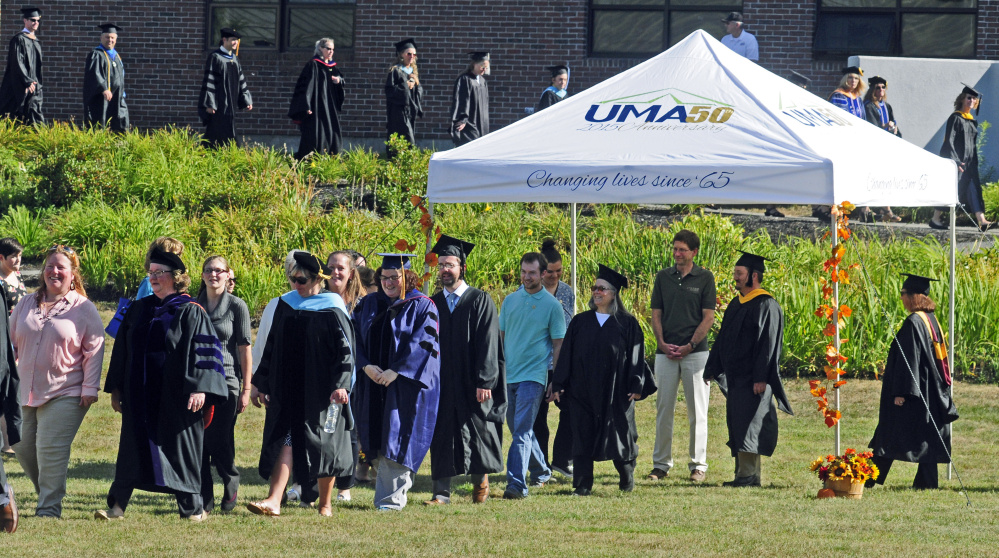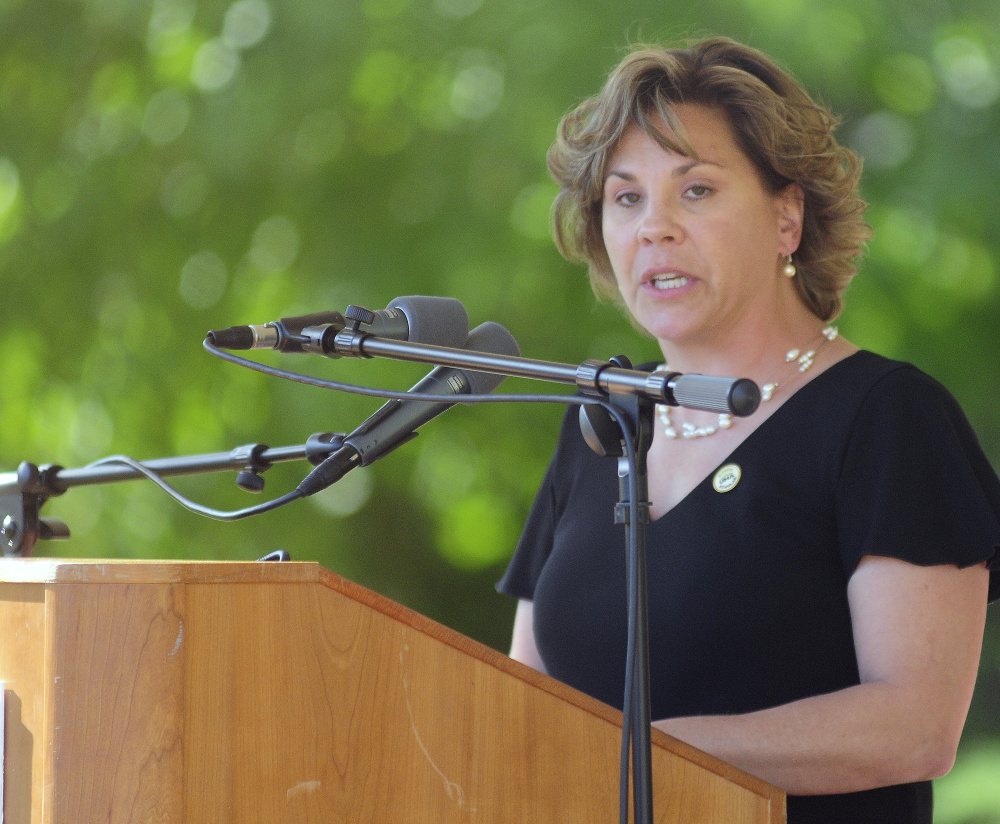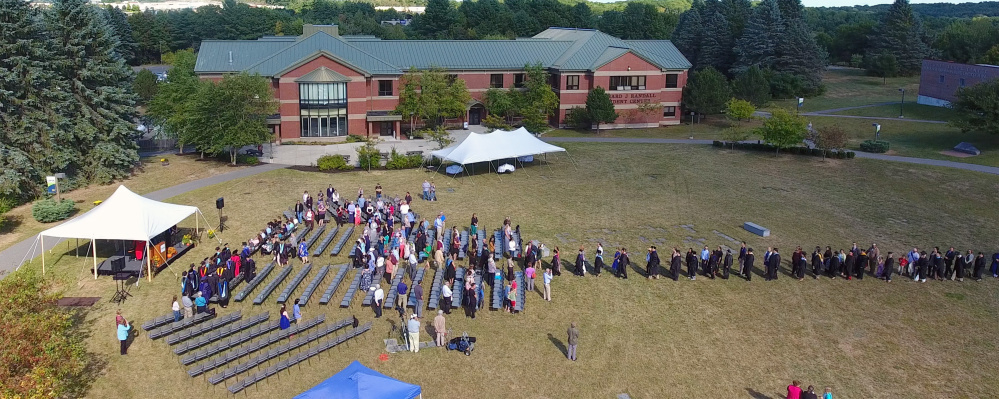AUGUSTA — It was blue-skied and balmy on Friday afternoon, as faculty, staff and students of University of Maine at Augusta gathered at the school’s main campus for a convocation ceremony to open the school year.
But metaphorical — if not literal — rainclouds were on the horizon in several of the talks delivered during the ceremony.
That’s because administrators of the UMA system have chosen climate change as the academic theme for the 2016-2017 school year. As such, numerous speakers spoke about the risks, results and potential solutions to one of the greatest issues facing the planet: warming temperatures and the myriad ways they are making life more unpredictable for just about every species on earth.
The keynote address was given by Colin Woodard, a journalist who has covered climate change for a large chunk of his career and this year was named a finalist for the Pulitzer Prize in Explanatory Reporting for a series he wrote in the Portland Press Herald about the effects of a warming Gulf of Maine.
Attendees also heard addresses from UMA president James Conneely, provost Joseph Szakas, biology professor Peter Milligan and biology major Ellen Stoops.
As a side-demonstration of what’s on offer through UMA’s aviation program, two of the program’s coordinators, Gregory Jolda and Daniel Leclair, piloted an unmanned aerial vehicle — a drone — over the ceremony and used it to record video during the first part of the proceedings.
Stoops, a biology student at UMA who hopes to become a physician’s assistant, used her talk to mention a demonstrated effect of climate change in Maine — higher rates of Lyme disease — and highlighted a few of the ways UMA is trying to lessen its own footprint on the planet. She referenced faculty who will attempt to live this year without generating any waste, and a separate effort to replace the school’s water fountains with water bottle filling stations.
Milligan, the biology professor, spoke of how difficult it may be for non-scientists to form opinions on climate change given how politically charged the issue is.
For those who are confused, he recommended a few principles to follow when learning about climate and forming opinions on the subject: think critically, beware of conspiracy theories, recognize your own biases, be skeptical of corporations, make the issue personal, view the issue ethically and think about what you can do now to limit your own personal consumption.
Woodard, the journalist, described some of the ways he has observed climate change affecting people over the last couple decades: Farmers in Greenland can now grow broccoli, people in the Marshall Islands are facing the sinking of their nation into rising seas, Holland has had to pump large quantities of water back into the sea.
But one of the biggest changes Woodard has noticed, he told those at the convocation, is the clear arrival of climate change-related issues in his home state of Maine. Rising temperatures in the Gulf of Maine have driven some species away while attracting others that don’t normally stray this far north: green crabs, Maryland blue crabs, black sea bass.
“It’s a here and now issue,” Woodard told the crowd. “In sort of a blink of geological time, or even historical time: In just 20 years, there’s been this dramatic change, and today climate change is in fact here with us both in time and in space, and will be especially for students out there and my children who are in kindergarten and prekindergarten.”
Then in a nod to the academics before him, Woodard continued, “It’s going to be a dramatic research issue going forward.”
Conneely, UMA’s president, took a slightly different tact, speaking of “institutional climate” at the school, which strives to be accessible and empowering to its students. But then he tied that back to the broader theme of climate change.
“The ideal campus climate at UMA is one that sees personal discovery as a natural outcome of rigorous scholarship,” Conneely said. “Our community therefore engenders an ideal climate of opportunity and growth when our high standards nourish the needs and aspirations of our students, who as graduates will provide the leadership necessary to ensure the sustainability of this planet.”
Charles Eichacker — 621-5642
Twitter: @ceichacker
Send questions/comments to the editors.






Success. Please wait for the page to reload. If the page does not reload within 5 seconds, please refresh the page.
Enter your email and password to access comments.
Hi, to comment on stories you must . This profile is in addition to your subscription and website login.
Already have a commenting profile? .
Invalid username/password.
Please check your email to confirm and complete your registration.
Only subscribers are eligible to post comments. Please subscribe or login first for digital access. Here’s why.
Use the form below to reset your password. When you've submitted your account email, we will send an email with a reset code.